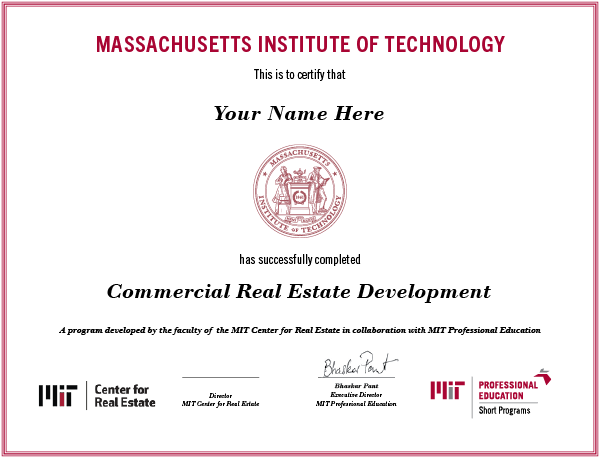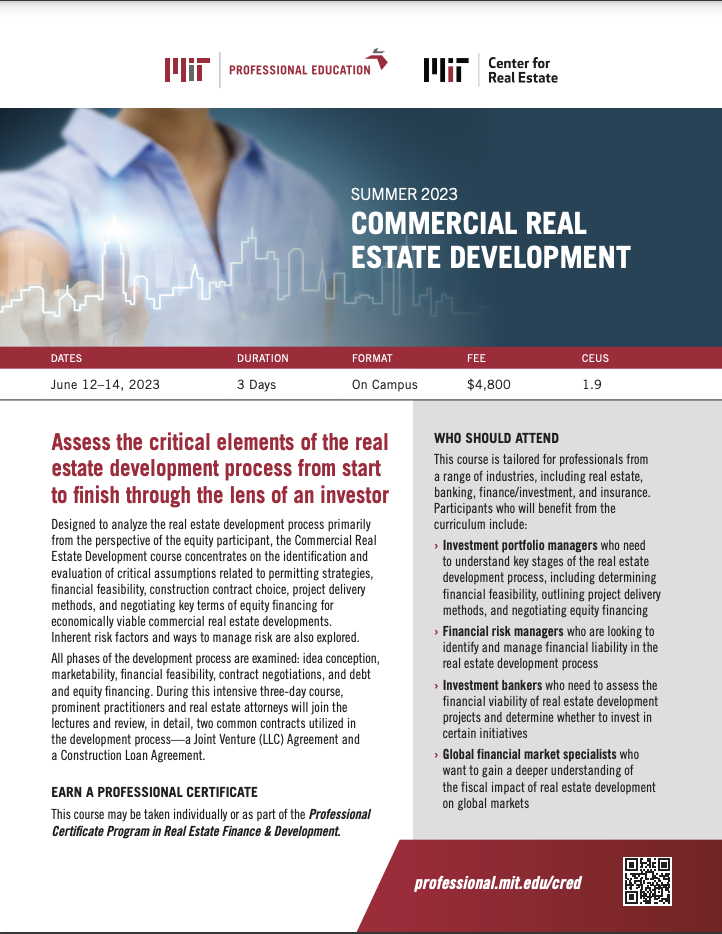Assess the critical elements of the real estate development process from start to finish through the lens of an investor. In this accelerated three-day course, you’ll join a wide range of global professionals from the real estate, banking, finance/investment, and insurance industries to master frameworks for assessing, managing, and pricing risk in real estate development—and acquire proven strategies for determining whether to move forward with a project.
This course may be taken individually or as part of the Professional Certificate Program in Real Estate Finance & Development.
The type of content you will learn in this course, whether it's a foundational understanding of the subject, the hottest trends and developments in the field, or suggested practical applications for industry.
How the course is taught, from traditional classroom lectures and riveting discussions to group projects to engaging and interactive simulations and exercises with your peers.
What level of expertise and familiarity the material in this course assumes you have. The greater the amount of introductory material taught in the course, the less you will need to be familiar with when you attend.




